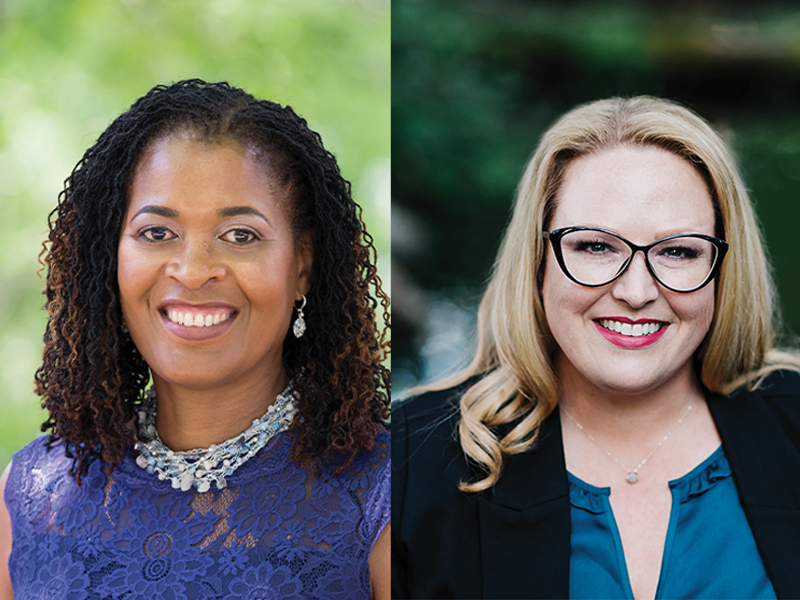
While Canada has had pay equity laws since the 1970s, gender pay gaps still exist, but new pay transparency legislation in British Columbia is aiming to make an impact.
Paulette Senior, president and chief executive officer of the Canadian Women’s Foundation
The pace of closing the gender pay gap is glacial. All kinds of reports confirm it. A 2022 study of part- and full-time employees found women make 21 per cent less than men. Another study found that, among the companies that report, not a single Canadian organization has closed its gender pay gap.
Rather than view this as a single gap problem, we need to realize we’re dealing with gender pay gaps, plural. Racialized women, Indigenous women, newcomer women and women with disabilities all face bigger pay gaps.
Read: Women powered pandemic shift toward higher paying jobs, but pay gap persists: report
Gaps create financial pressures at every life stage — and they accumulate. Girls have a summer job pay gap of almost $3 per hour. Women post-secondary students are more likely to leave school with loans to pay and lesser means to do so. The gender pension gap is 22 per cent, with women retiring with about 80 per cent of men’s pensions.
Canada has had pay equity laws on the books since the 1970s, but gender pay gaps persist. Contrary to the slogan, it isn’t just a matter of ensuring “equal pay for equal work.” We’re dealing with a history of unfairness and bias when it comes to paying women, girls and gender-diverse people livable wages and fully valuing the work they do in our workplaces, families and communities.
What will move the needle? One answer is workplace decision-makers being proactive rather than waiting on legislation to tell them to close pay gaps. Workplaces can prioritize flexibility, especially for mothers and caregivers, and pay transparency practices today. Equitable companies outperform peers and fairness is an indicator of a good workplace, so this is a matter of good business.
Read: More work to be done in shrinking Canada’s gender pay gap: report
We also need more effective pay equity legislation across all sectors, increases to minimum wages and universal accessible childcare, all of which will help us build a fairer, stronger and resilient economy.
Kelli Paddon, parliamentary secretary for gender equity in the B.C. government
People deserve equal pay for equal work, but according to Statistics Canada, women in B.C. earned 17 per cent less than men last year, one of the highest pay gaps in Canada.
We know there are a number of drivers of the pay gap, including over-representation of women in lower paid jobs, under-representation in leadership, sexual harassment, childcare costs and wage discrimination.
Our government has been working to close the pay gap since 2017. We’ve made historic investments in childcare — as a direct result, 75 per cent of job growth in 2022 was women entering the workforce. We made contraceptives free for everyone in B.C. and we’re investing in housing for women facing violence. We raised B.C.’s minimum wage, which is now one of the highest in Canada, and provided employment and skills training so women benefit from good paying jobs. Our work is paying off — since 2017, B.C. has had the fastest growing women’s wages in Canada.
Read: How B.C.’s pay transparency legislation could impact employers
We still have more work to do. Earlier this year, we passed pay transparency legislation, an important next step towards pay equity.
Under the legislation, employers can’t ask employees for pay history or punish employees who disclose their pay to co-workers or potential job applicants. Beginning in November, employers will be required to post wage or salary information for publicly advertised jobs. In a phased approach starting with B.C.’s largest employers, they will also be required to report on their pay gap.
This also represents an opportunity for organizations to lead and demonstrate to job-seekers that they’re an employer of choice when it comes to pay equity. B.C. will also be the first jurisdiction in Canada to ensure that addressing the pay gap goes beyond the gender binary.
We’re committed to pay equity and will continue to assess our progress and take action to end the gender pay gap in B.C.
